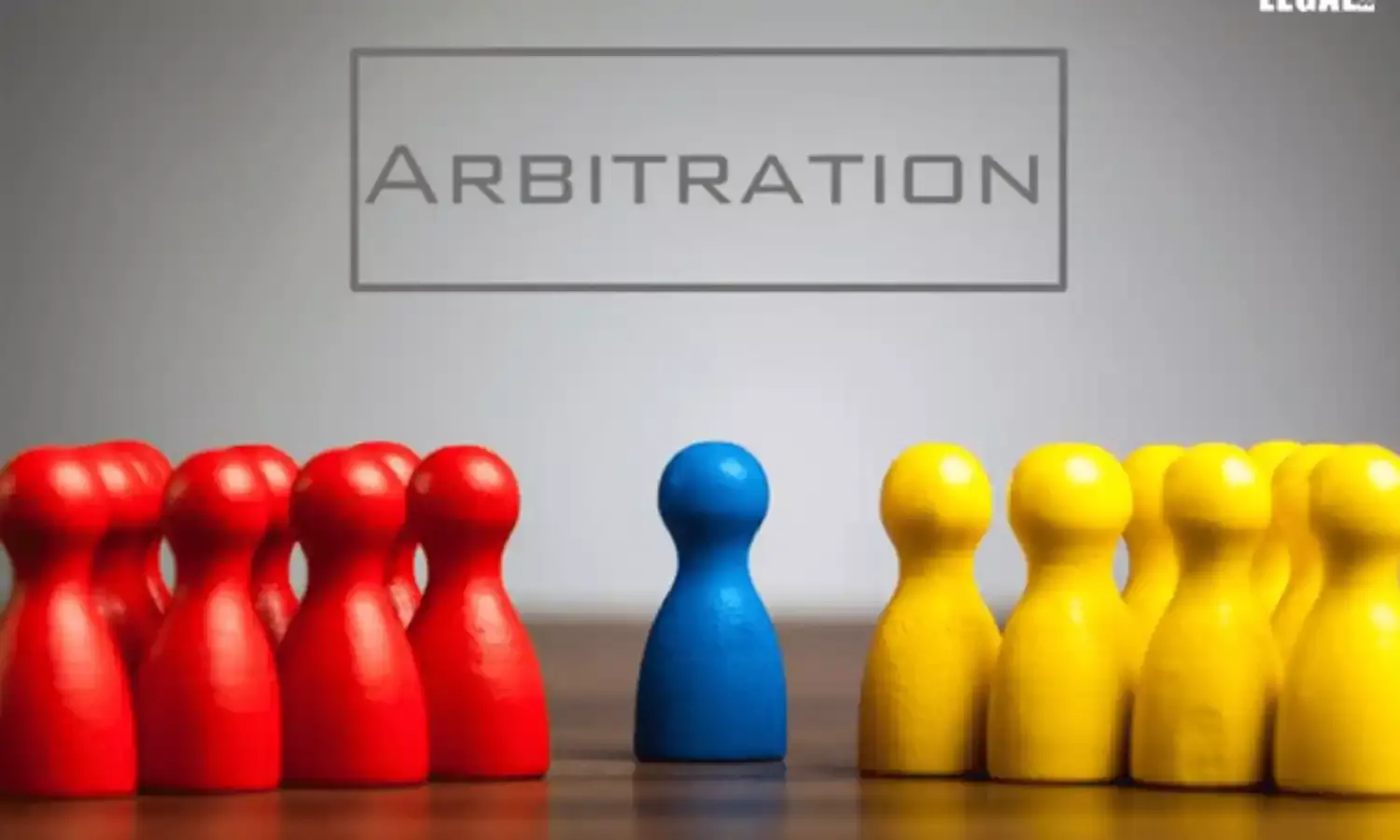Supreme Court Reserves Verdict On Courts' Power To Modify Arbitral Awards Under Arbitration Act
The Supreme Court's five-judge constitution bench, led by Chief Justice of India Sanjiv Khanna, reserved its decision on;

Supreme Court Reserves Verdict On Courts' Power To Modify Arbitral Awards Under Arbitration Act
The Supreme Court's five-judge constitution bench, led by Chief Justice of India Sanjiv Khanna, reserved its decision on February 19 regarding the scope of judicial power to modify an arbitral award under Sections 34 and 37 of the Arbitration and Conciliation Act, 1996.
Section 34 outlines the process for setting aside an arbitral award, whereas Section 37 specifies the instances in which an appeal may be filed against orders relating to arbitral disputes. During the hearing, CJI Khanna emphasized that Sections 34 and 33 were introduced to ensure corrective measures exist in arbitration, which follows a one-step adjudication model.
"Arbitration is a one-step adjudication. While this has drawbacks, the legislature intends for corrective measures to be available to parties through provisions such as Section 33 or Section 34(4)," CJI Khanna remarked.
Senior Advocate Saurabh Kirpal contended that the power to set aside an award does not inherently include the power to modify it. He argued that Indian jurisprudence has always treated modification powers as distinct from the authority to set aside judgments. Referring to the Arbitration Act of 1940, Kirpal noted that Section 15 explicitly provided for modification, whereas the 1996 Act does not. He insisted that the omission was deliberate and reflected a shift in legislative intent.
Justice Sanjay Kumar inquired whether the absence of the word "modification" in the 1996 Act should be given significant weight, considering that the essence of Section 15 of the 1940 Act had been incorporated into the 1996 Act through Section 34(2) and the proviso to Section 33. Kirpal responded that modification remains conceptually distinct from setting aside an award.
CJI Khanna observed that in many cases, courts effectively modify an award when they partially set it aside. "When you say partially setting aside the award, that is also a form of modification. The power to do so exists regardless of the specific language of the proviso to Section 34(2)(b), and we have interpreted this provision broadly."
Kirpal countered that the Arbitration Act operates on the principle that awards should be upheld unless they are fundamentally flawed. He warned that expanding judicial intervention to include modification powers could create economic uncertainty, as businesses rely on arbitration for swift dispute resolution.
Senior Advocate Gourab Banerjee emphasized that granting Indian courts the power to modify arbitral awards could undermine the enforceability of international commercial arbitration (ICA) awards in foreign jurisdictions. He pointed out that jurisdictions like the United Kingdom and New Zealand explicitly provide for modification, whereas the Indian statute does not.
Senior Advocate Gaurav Pachnanda added that Section 34 should not be equated with appellate jurisdiction, as its purpose is limited to setting aside an award under specific circumstances. He further argued that the doctrine of merger, which establishes that lower court rulings merge into higher court decisions, does not apply to arbitration matters decided under Section 34.
Solicitor General Tushar Mehta contended that the Arbitration Act is a self-contained legal framework. He argued that the deliberate omission of modification powers in the 1996 Act was intended to minimize judicial intervention. He cautioned that allowing courts to modify awards could lead to inconsistent and subjective judicial approaches across different courts.
CJI Khanna responded that courts have a role in addressing legislative gaps. "There is always an element of judicial discretion when interpreting legislation. Our role is not to overstep but to apply discretion within the framework of the law."
This case was referred to a larger bench in February 2024 due to conflicting precedents. Some Supreme Court rulings, such as M. Hakeem, Larsen Air Conditioning, and SV Samudram, have held that courts lack the power to modify awards under Sections 34 or 37. However, other decisions, including Vedanta Limited, Oriental Structural Engineers, and MP Power Generation Co. Ltd., have either modified awards or upheld their modification.
The five-judge bench is examining the following key questions:
1. Do the powers under Sections 34 and 37 include the authority to modify an arbitral award?
2. If modification is allowed, can it only be exercised when the award is severable?
3. Does the broader power to set aside an award under Section 34 include the ability to modify it, and if so, to what extent?
4. Can the power to modify an award be implied within the power to set it aside under Section 34?
5. Do previous rulings in M. Hakeem, Larsen Air Conditioning, and SV Samudram correctly interpret the law, or should the approach in cases like Vedanta Limited, Oriental Structural Engineers, and MP Power Generation Co. Ltd. be preferred?
The Supreme Court’s decision in this matter will have significant implications for arbitration in India, particularly regarding judicial intervention in arbitral awards. If modification powers are recognized, it may alter the arbitration landscape by expanding the scope of judicial review. Conversely, upholding a strict interpretation of Sections 34 and 37 may reinforce arbitration’s finality and efficiency as an alternative dispute resolution mechanism.

